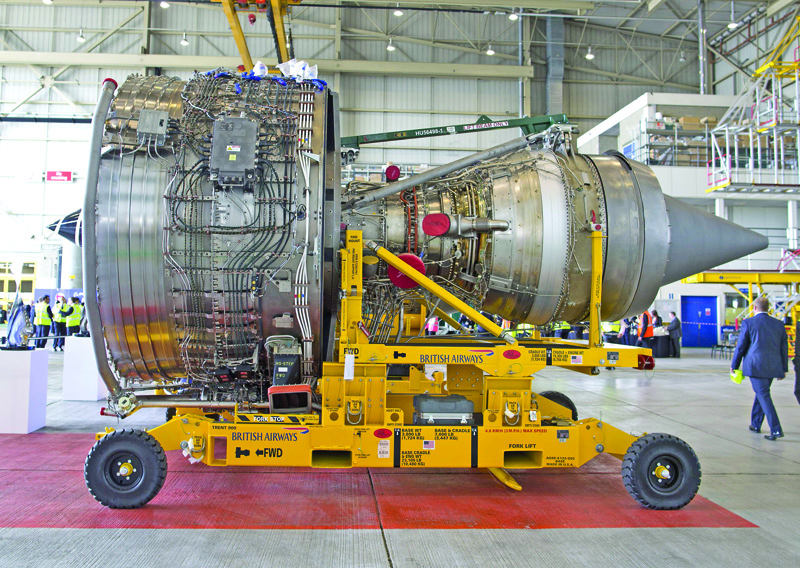
LONDON: British aerospace giant Rolls-Royce yesterday logged a vast net loss for the first half of 2020 as the coronavirus outbreak grounded aircraft worldwide and sparked a crisis in air transport. Rolls, which operates in the air, defense and energy sectors, posted a net loss of £5.4 billion ($7.1 billion, 6.0 billion euros) in the six months to June. It also unveiled a £2.0-billion asset disposal program as part of its ongoing overhaul.
The dire first-half performance compared with a year-earlier loss of £909 million, it added in a results statement. The company, whose products power Airbus and Boeing aircraft, has also ramped up its cash holdings to help navigate the damaging fallout from the ongoing global health emergency. "The Covid-19 pandemic has significantly affected our 2020 performance, with an unprecedented impact on the civil aviation sector with flights grounded across the world," Chief Executive Warren East said in the earnings release.
"We have responded rapidly to increase our liquidity, with £6.1 billion at the end of H1 and a further £2.0-billion term loan agreed in H2, to help weather the continued uncertainty around the timing and shape of the recovery in the civil aviation sector. "We have made significant progress with our restructuring, which includes the largest reorganisation of our civil aerospace business in our history." Rolls-Royce has been hit hard by the pandemic grounding passenger planes worldwide and causing airlines to cuts thousands of jobs and slash costs.
Rolls is also doing the same, announcing in May that it was shedding 9,000 jobs, or 17 percent of its global workforce. Yesterday it added that it expected to raise more cash from asset disposals to help it weather the downturn. "While our actions have helped to secure the group's immediate future, we recognise the material uncertainties resulting from Covid-19 and the need to rebuild our balance sheet for the longer term. We have identified a number of potential disposals that are expected to generate proceeds of more than £2.0 billion.
"Furthermore, in light of ongoing uncertainty in the civil aviation sector, we are continuing to assess additional options to strengthen our balance sheet to enable us to emerge from the pandemic well placed to capitalize on the long-term opportunities in all our markets." The group has spent the past two years cutting thousands of management roles following weak demand for its power systems used by the marine industry.- AFP

